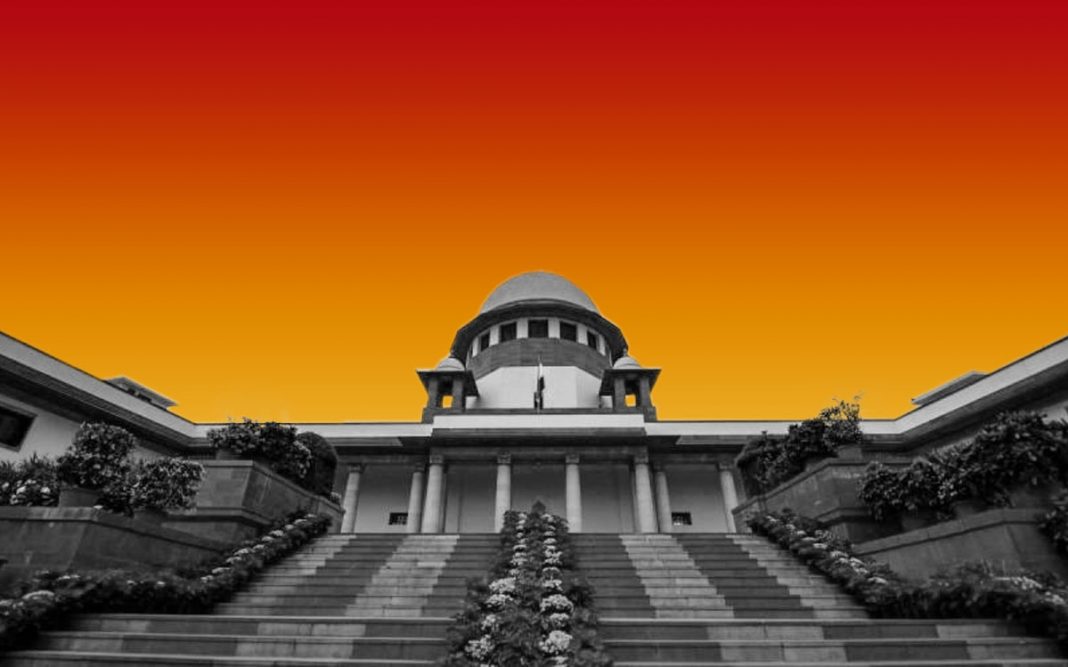The Supreme Court reserved its order in a plea filed by Kavitha Lankesh, the sister of journalist Gauri Lankesh, who was shot dead outside her home in Bengaluru on September 5, 2017, challenging the judgment passed by the Karnataka High Court, which had quashed the charges under Karnataka Control of Organized Crime Act 2000 against accused Mohan Nayak.
The matter was listed before the bench of Justices A. M. Khanwilkar and Sanjiv Khanna and the bench has asked the parties to file written submissions.
The petition was filed in the Supreme Court by Kavitha Lankesh aggrieved by the order passed by High Court of Karnataka at Bengaluru, wherein the High Court partly allowed the petition filed by the respondent/accused Mohan Nayak, who sought to quash the order dated August 14, 2018 passed by the Commissioner of Police, Bengaluru City against him.
On September 5, 2017, at around 8 pm, some unknown persons murdered Gauri Lankesh by shooting her near her house. Her sister Kavitha filed a complaint regarding the same before Rajarajeshwari Nagar police station. A chargesheet was filed against KT Naveen Kumar for the offence punishable under Sections 302,114,118,120B, 35 of IPC read with Sections 3 and 25 of Arms Act.
The Commissioner of Police, purportedly acting under Section 24(1)(a) of the Karnataka Control of Organized Crime Act 2000, granted approval to the Investigating Officer to conduct further investigation invoking Section 3 of the Karnataka Control of Organized Crime Act 2000.
The Counsel for Nayak had raised various grounds and challenged the order granting permission under Section 24(1)(a) Act against him (i) That he was not involved in continuing unlawful activity as contemplated in Section 2(1)(d) of the Act; (ii) The charge sheet allegations do not attract organized crime as contemplated under Section 2(e) of the Act; & (iii) By such unlawful invocation of Section 24(1)(a) of the Act, personal liberty of the respondent is violated, thereby the order Annexure-A is violative of Article 21 of the Constitution of India, 1950.
The High Court said,
“It is clear that the approval order was contrary to the language and requirement of Section 24 (1)(a), 2(1)(d) and 2(1)(e) of the Act. H. S. Chandramouli, Special Public Prosecutor, tenaciously contended that the accused has not challenged the sanction order, the charge sheet or the order taking cognisance, therefore the petition challenging only the approval order is not maintainable.
All the subsequent acts namely sanction order, charge sheet and the order taking cognizance flow from the approval order. If the approval order itself is bad in law, the sanction order, the charge sheet and the approval order so far as the offences under the Act against the respondent have no legs to stand.”
The respondent not only sought quashing of the approval order, but also has sought for quashing of the additional charge sheet filed invoking Section 3 of the Act and Section 302, 114, 118, 120B read with Section 35 of IPC and Sections 3 and 25 of the Arms Act. The substantial challenge was against invocation of the provisions of the Act, the prayer of the respondent was considered only to that extent.
The additional charge sheet filed by investigating officer against the accused for the offences under Sections 3(1)(i), 3(2), 3(3) and 3(4) of the Act was quashed.
The petitioner stated before the apex court that the accused was relying on the said judgement for seeking bail. The Supreme Court had issued notice and directed that the Court should decide the bail application without being influenced by the judgment.


